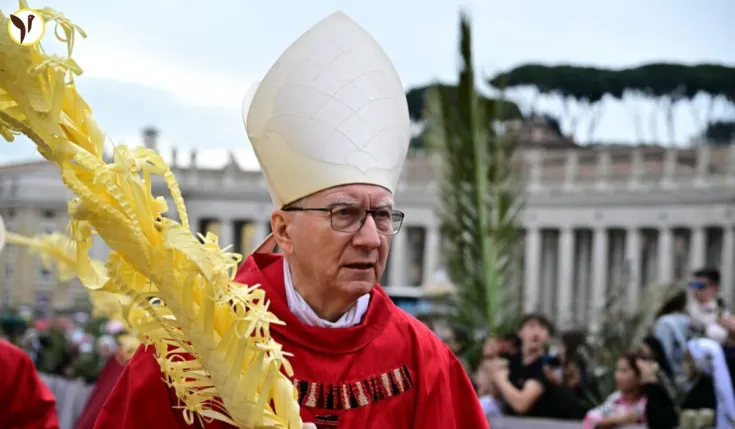The Next Pope: Cardinal Pietro Parolin and the Future of the Catholic Church
With the passing of Pope Francis, the Catholic world eagerly awaits the election of his successor. The upcoming conclave presents a pivotal moment, fraught with ideological, political, and administrative challenges that will profoundly impact the 1.3 billion Catholics worldwide. While several cardinals are considered "papabili" (potential popes), one name consistently tops the lists: Cardinal Pietro Parolin, the current Vatican Secretary of State. But who is Parolin, and what does his potential papacy mean for the future of the Church, particularly regarding LGBTQ+ rights?
Parolin: A Leading Contender
Cardinal Pietro Parolin, a 70-year-old Italian, has served as the Vatican's Secretary of State since 2013, effectively acting as Pope Francis's right-hand man. His experience in high-level diplomacy, navigating complex international relations, particularly with China and Vietnam, makes him a compelling candidate. His calm demeanor and diplomatic skills are seen as assets in a Church facing deep divisions.
- Extensive Diplomatic Experience: Parolin's long career in Vatican diplomacy provides valuable experience in navigating international relations and mediating complex conflicts.
- Close Ties to Pope Francis: His close working relationship with Pope Francis gives him insider knowledge of the current state of the Church.
- Administrative Expertise: Parolin's leadership within the Vatican's administrative structures is highly valued.
However, Parolin's candidacy is not without its controversies. His involvement in the 2018 Vatican-China agreement, which critics see as compromising the Church's independence, remains a point of contention. Concerns also surround his proximity to Cardinal Angelo Becciu, who was convicted in a Vatican financial scandal. These factors could hinder his ability to garner the necessary two-thirds majority vote.
Parolin's Stance on LGBTQ+ Rights: A Complex Picture
Parolin's position on LGBTQ+ issues is nuanced and hasn't been explicitly defined. While he has expressed concern over what he terms "gender ideology," he has also rejected claims linking homosexuality to clerical sexual abuse. This ambiguity leaves room for speculation about his future actions should he become pope. This uncertainty is a significant factor, given the ongoing debates about LGBTQ+ inclusion within the Church.
- Mixed Record: Parolin's public statements on LGBTQ+ matters are limited and don't offer a clear ideological position.
- Ambiguity as a Concern: This lack of clear statements has made it difficult to gauge his potential support for LGBTQ+ rights as the next Pope.
- Pressure to Define a Stance: If elected, Parolin will inevitably face pressure to clarify his position on this crucial issue.
The Broader Context: Challenges Facing the Next Pope
Beyond Parolin, the conclave faces a broader range of challenges. The Church is deeply divided between progressive and conservative factions, with significant disagreements on issues such as the traditional Latin Mass, communion for remarried Catholics, and the blessing of same-sex couples. The next pope will need to address these divisions and find a path toward unity. Furthermore, the Church's relationship with China, and its governance structure, remain significant concerns.
Conclusion: A Crucial Decision for the Future
The election of the next pope is a momentous occasion, shaping not only the Catholic Church but also influencing global affairs. Cardinal Pietro Parolin emerges as a prominent contender, offering a blend of diplomatic experience and administrative expertise. However, his potential papacy is intertwined with complex challenges, particularly concerning his stance on LGBTQ+ issues and his handling of sensitive international relationships. The world waits with bated breath to see who will emerge as the next shepherd of the Catholic Church and what direction they will lead the flock.






